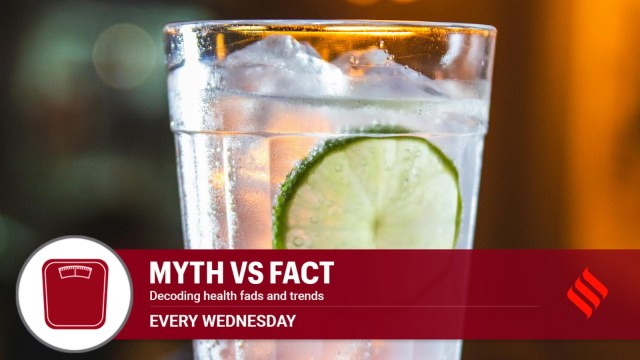Can zero soda or soda water be good for you?
Dr Richa Chaturvedi, Senior Consultant, Endocrinology, Indraprastha Apollo Hospitals, on whether this thirst quencher works for you
 Zero sodas are free from added sugars, which are known to accelerate weight gain, obesity and trigger Type 2 diabetes and heart disease. (Pexels)
Zero sodas are free from added sugars, which are known to accelerate weight gain, obesity and trigger Type 2 diabetes and heart disease. (Pexels)Is your parched throat craving soda? But before you reach out for one instinctively, consider its variety. The regular sugar-laden varieties are universally regarded as unhealthy due to their high sugar content and lack of nutritional value. So, they are a no-no. However, the rise of zero-calorie sodas, often marketed as “diet” or “zero,” are not necessarily a healthier alternative.
Zero sodas are free from added sugars, which are known to accelerate weight gain, obesity and trigger Type 2 diabetes and heart disease. They do not have empty calories. However, the key ingredient that gives zero sodas their distinctive taste is an artificial sweetener, such as aspartame, saccharin, sucralose or stevia. While these sweeteners are generally recognised as safe for consumption by regulatory bodies like the US Food and Drug Administration (FDA), there is ongoing debate about their potential long-term effects on health.
Some studies have suggested that artificial sweeteners may contribute to increased appetite and cravings for sweet foods, potentially leading to weight gain over time. Ingesting them frequently may increase your desire for reward-seeking and high-calorie foods, putting you at a greater risk of weight gain. In fact, a study has found that people with obesity, who switched to diet soda, were likely to consume more calories in food than their counterparts who drank regular soda. In fact, those who drank diet soda reported a higher body mass index (BMI) than their counterparts.
In another study, individuals who consumed a specific artificial sweetener (sucralose) had increases in both insulin and blood glucose levels. Frequent rises in insulin have been linked to insulin resistance and an increased risk of diabetes.
Additionally, there are concerns that these sweeteners may disrupt the gut microbiome, potentially impacting digestion and overall health.
Another point of contention is the acidity of zero sodas. Like their regular counterparts, zero sodas often contain phosphoric acid, which can potentially contribute to tooth enamel erosion, kidney stone formation and other health issues if consumed in excess.
Many might wonder if carbonated water without artificial sweeteners could be safe. But a study among students found that when they drank any carbonated beverage (regular soda, diet soda, or carbonated water), their ghrelin or hunger hormone rose to higher levels than when they drank water or flat soda. So this might lead to hunger, increased food consumption and weight gain.
I would say if you want to consume zero sodas at all, consume them in moderation. They are not a substitute for water, which remains the healthiest beverage choice for hydration and overall well-being. For those seeking a healthier alternative to regular soda, cold teas or water infused with fresh fruit can provide a refreshing and healthy option without the added sugars or artificial sweeteners.
Photos





- 01
- 02
- 03
- 04
- 05


























